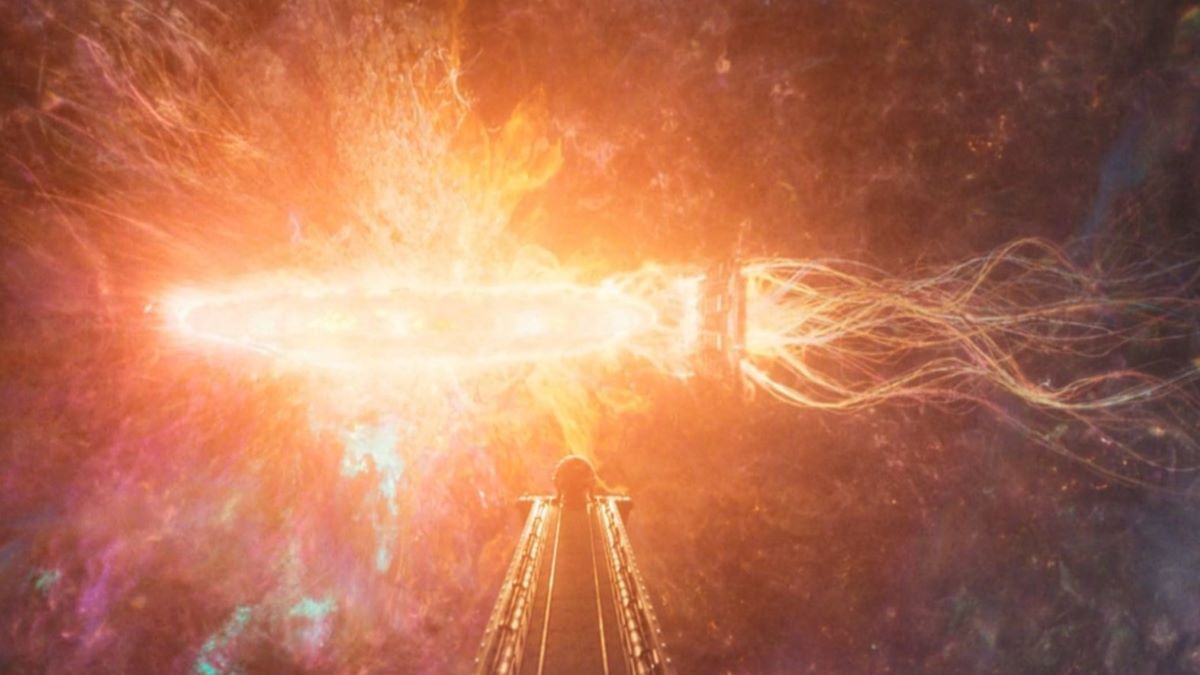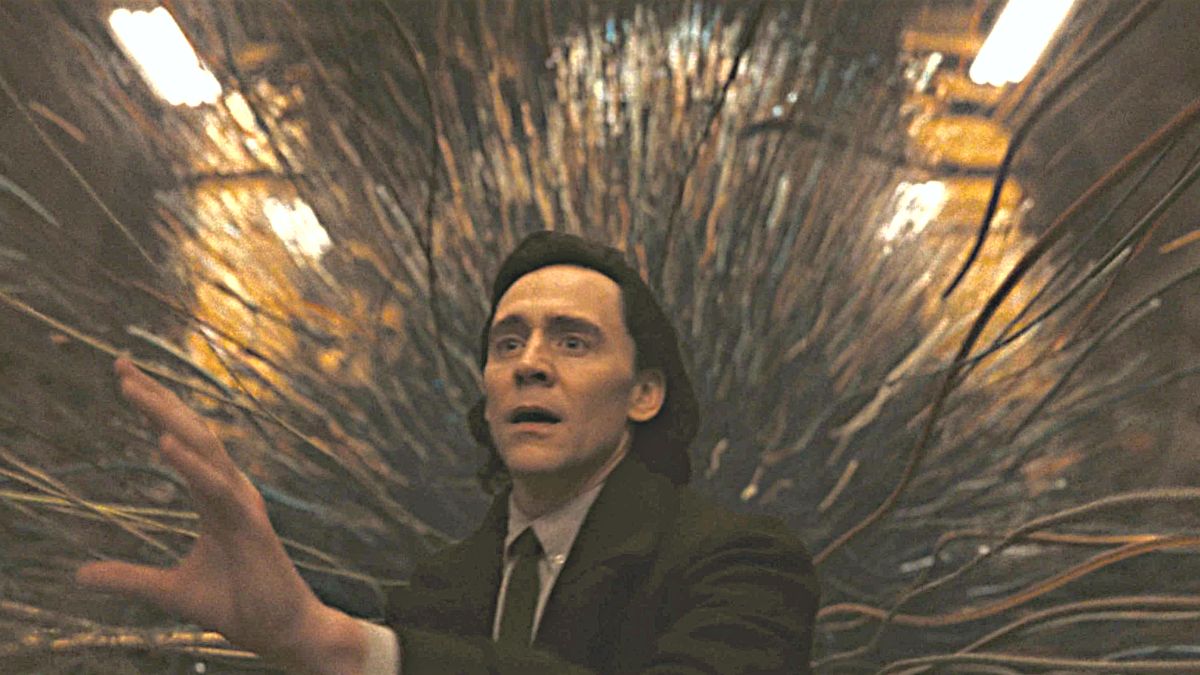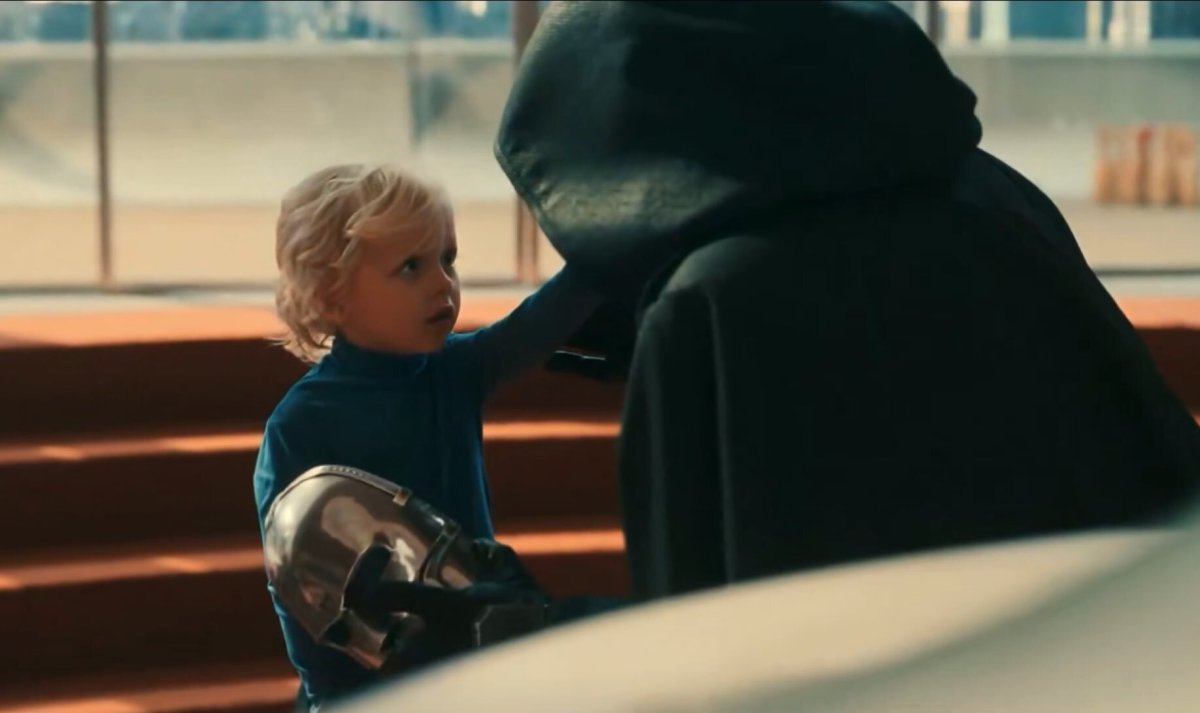The second season of Loki is riddled with mysteries, and the biggest of them all could very well be the origins of the title anti-hero’s time-slipping.
Thinking it had been fixed after the first episode, the mischievous demi-god and all of us watching were surprised to see the strange phenomenon reoccur after the explosion of the Temporal Loom. While Loki did realize how he could control his time-slipping by the end of episode five, the question still remains of what caused it in the first place.
The sixth and final episode of the show holds all the answers, but naturally, fans, too anxious to wait, have started crafting their own theories.
Sylvie is controlling Loki’s time-slipping with He Who Remains’ Tempad

This is the leading theory among Redditors. We’re now five episodes into the second season of Loki and we have still not been shown what Sylvie has been using He Who Remains’ Tempad for, except for creating time-doors for herself at will.
Loki’s time-slipping began when Sylvie did exactly that. She sent him through a time door using He Who Remains’ Tempad, which we know is much more powerful than the one the TVA’s Minutemen use. For instance, we saw the time lord use it to teleport seamlessly in the season 1 finale.
Who knows what other tricks this powerful device has been hiding? Could it possibly send other people through space and time from a distance? While this would explain the point of this McGuffin having such an ominous introduction back in episode 2, it doesn’t quite align with Loki’s realization at the end of episode 5. If he now knows how to control it, was the time-slipping ever something imposed on him by someone else, or something that he inherently developed? Maybe he now has to power to override Sylvie’s commands, but we doubt it.
Loki is living outside of time

The explanation for Loki’s time-slipping could be as simple as a freakish time-breaking accident. Perhaps going through a time door at the moment when the multiverse started to branch out uncontrollably, like what happened in the finale of the first season, broke something in Loki or, if you’re a glass-half-full person, gave him powers.
Additionally, Sylvie didn’t just send him back to the TVA, she sent him to the TVA in the past, before He Who Remains created the Time Keepers. The TVA isn’t supposed to have a past, present, and future, but the fact that Loki was sent back there, created some kind of rip or disturbance that caused him to time-slip. O.B. said it himself, it’s impossible to time-slip in the TVA, so it makes sense that a disruptive event that happened to Loki only could have made him, in some ways, immune to some of the rules of time travel.
What’s more fascinating about this theory is that O.B.’s supposed fix, which ripped Loki from all time and space, only made his time-slipping more powerful, because he is now completely free to go anywhere he wants to, without creating branching timelines.
Loki doesn’t abide by the previously established rules of time-traveling in the MCU, because he exists outside of time. Like a human version of the TVA.
The Temporal Loom’s malfunction and override gave Loki the powers

Similarly to the theory above, maybe it was the Temporal Loom’s override after Sylvie killed He Who Remains that somehow “infected” Loki and only Loki, giving him these unique abilities. It wouldn’t be the first time in the MCU that the source of a character’s powers is the energy being released from a powerful device or artifact.
We don’t know for sure when Loki was directly exposed to the Temporal radiation overflowing from the Temporal Loom, which eventually turned Victor Timely into spaghetti, but it doesn’t feel coincidental that Loki’s time slipping started exactly at the same time as the multiverse began exploding. A theory that connects the two makes perfect sense, we just need to hash out the details.
Loki’s emotions are what caused time-slipping and are what allow him to control it

The second most popular theory is that, just like Loki’s emotions are what apparently allow him to control his time-slipping, it was also his emotions that caused it in the first place. This theory is particularly embraced by Twitter users and fans of Loki and Sylvie’s relationship.
According to this theory, it was the fear of losing Sylvie and the heartbreak of her betrayal that somehow unlocked this newfound power within Loki. All Lokis are magical, and manipulation of reality has always been, on a much smaller scale, part of their power-set. Maybe strong emotional trauma impacted Loki’s dormant powers and expanded his abilities to manipulate and re-write reality. Through time-slipping, he will be able to rewrite history and make amends with Sylvie, juggling every moving piece so that he gets his desired effect.
As we have seen in ep 5 (spoilers!) Loki’s time slipping is tied to his emotions. He can control it with emotional dedication to the people closest to him. Which makes me think that the origins of his time slipping are the same – caused by his powerful emotions.
— Little Hopepunk Goddess 💚🗡🦋 (@MitsubachiBine) November 4, 2023
2/5 pic.twitter.com/f4GnYe50Wo
This theory is maybe the most realistic because Sylkie fans reached it through information that is already canon. The very first time we see Loki control his time-slipping is after he witnesses Sylvie turn to spaghetti and slip away from his grasp. Like usually happens in superhero narratives, it’s his emotions that must be controlled in order to also control his powers. The uncontrollable emotions and confusing feelings stemming from his love for Sylvie and the pain of losing her are the reason Loki began time-slipping in the first place, and also the key to controlling it.











Published: Nov 6, 2023 08:57 am